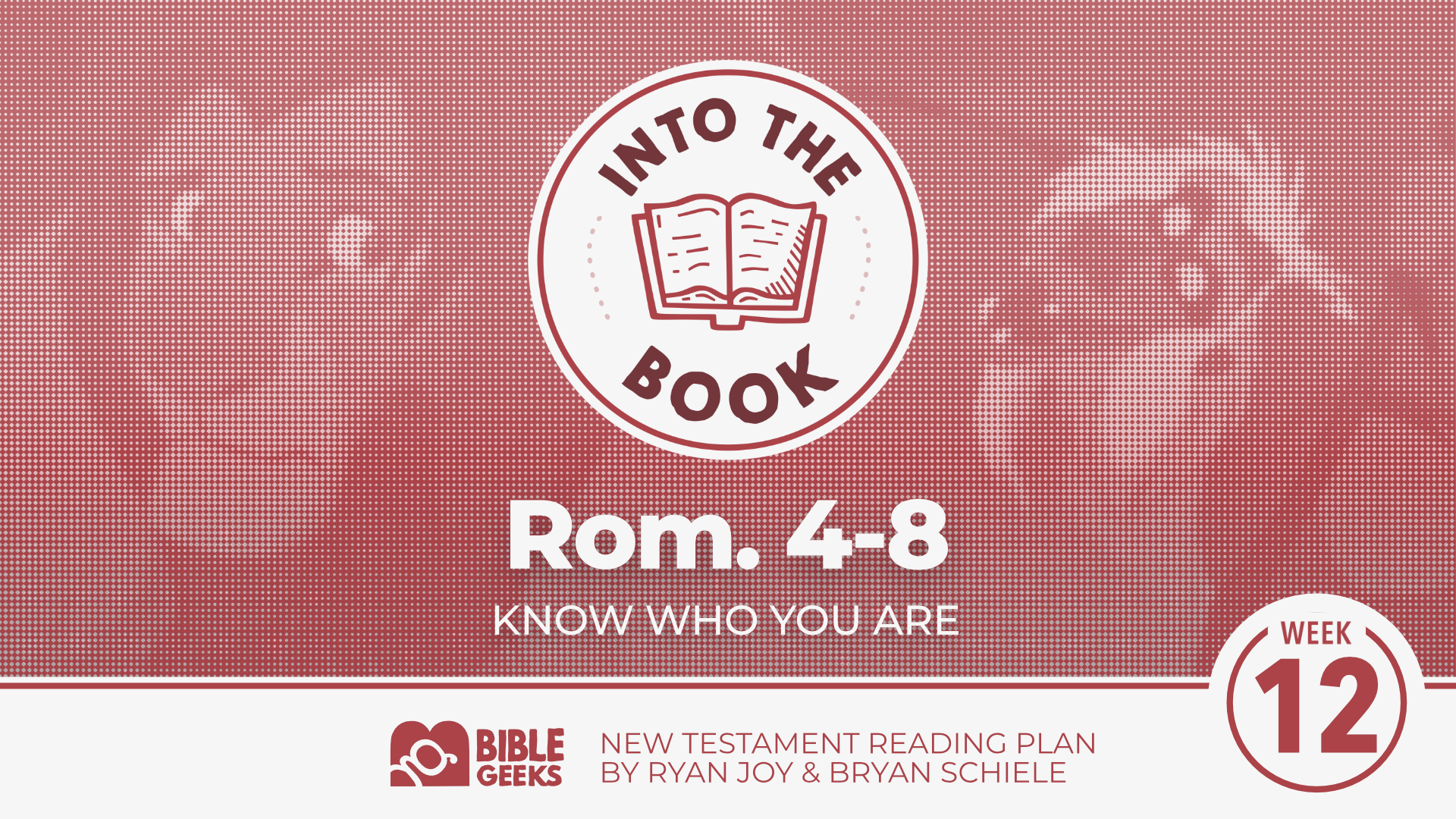
Rom. 4-8; Deut. 13-27; Psalm 34-36
FROM THE NEW TESTAMENT
Rom. 4-8
Know Who You Are
Disney's The Lion King tells the story of a lion named Mufasa, the great king of the Savannah, and his son, Simba, who should've succeeded him as king after Mufasa died. But Simba shirks his duty. He wanders around having fun with no worries until a wise baboon named Rafiki approaches him and says, "You don't even know who you are!"
Simba says, "And you do?" to which Rafiki replies, "You're Mufasa's boy."
"You knew my father?" Simba asks.
"Correction," Rafiki says, "I know your father." And Rafiki leads him to a pond and points to Simba's reflection to show him that his father is still alive in HIM. But Simba must remember who he is before he can fulfill his purpose.
Like Simba, we can lose our way when we forget our identity in Christ. So our readings this week remind us of who we are. Where do you find your identity?
A New Lineage
We often find some of our identity in the family we come from, and in Monday's reading (Rom. 4), we discover that we are part of a different family. As Gentile believers, we have a new lineage that goes back to a great forefather, Abraham. At the beginning of the Bible, in Genesis 3-11, we read about the destructive influence of sin on the world. Then God picked this one man, and his family, through whom to bless the whole world (Gen. 12). Jews, who took great pride in their ancestor Abraham, might expect that God would declare Abraham righteous based on keeping the Law of Moses. But instead, Abraham has this relationship with God based on his faith (Gen. 15:6), long before Moses received the law! Now we who believe God are his children (cf. Gal. 3:7). How does this chapter affect the way you think of your part in the story of the Old Testament?
A New Relationship
On Tuesday (Rom. 5), Paul contrasts Christ with Adam — who brought sin and death into the world. How are Christ and Adam different? How does Christ start something new in us? Why should we be confident in our relationship with God now (Rom. 5:8-10)? Can trials be a good thing in Christ (Rom. 5:3-5)?
A New Way of Life
When we forget who we are, we forget how we should live. On Wednesday (Rom. 6), we will read the importance of obeying the right master. What two masters must we choose between? What do you learn about baptism (Rom. 6:3-5)?
A New Present and a New Future
On Thursday (Rom. 7), we will see a bleak picture of human life in the flesh, including a tragic relationship with God's good law. But that all turns around in the glorious last verses of the chapter and the beautiful picture of our new life we'll read on Friday (Rom. 8). Romans chapter 8 is one of those passages worth reading more than once, savoring, even memorizing. What does it mean to be led by the Spirit of God? Why can we now call out to God as our "Abba, Father," the name Jesus used when praying (Mark 14:36)? What kind of future awaits us? What assures us that God is with us now?

FROM THE OLD TESTAMENT
Deuteronomy chapters 13-27 continue the narrative of God's covenant with Israel, outlining specific laws and guidelines for communal living, worship, and moral conduct. After establishing the importance of loyalty to God, the text addresses issues of false prophets, the consequences of idolatry, and the necessity of justice within the community. It emphasizes the centrality of worship in the life of the Israelites and reinforces the idea of collective responsibility.
As the Israelites prepare to enter the Promised Land, these chapters form a crucial component of their identity and their relationship with God, illustrating how obedience leads to blessings. Key themes such as faithfulness, accountability, and social justice resonate throughout, inviting reflection on communal and personal ethics that remain pertinent across generations. Deuteronomy thus serves as both a historical and theological guide, prompting deep questions about purpose, identity, and divine relationship.
Deut. 13-27
REFLECTING ON THE PSALMS
Psalm 34-36 presents a profound exploration of trust, praise, and the character of God. In Psalm 34, David expresses gratitude for God’s deliverance, inviting others to taste and see the goodness of the Lord. This psalm not only emphasizes the importance of worship but also highlights the assurance that those who seek the Lord lack no good thing. Psalm 35 portrays a plea for justice amidst adversity, showcasing God as a defender and the one who fights for the oppressed.
Psalm 36 transitions into a stark contrast between the wickedness of humanity and the steadfast love of God. It depicts the Lord's unfailing love as a refuge, portraying Him as a source of life and light. Together, these psalms encourage believers to find hope and shelter in God's protective presence, emphasizing His faithfulness in times of trouble and the richness of life found in communion with Him.


